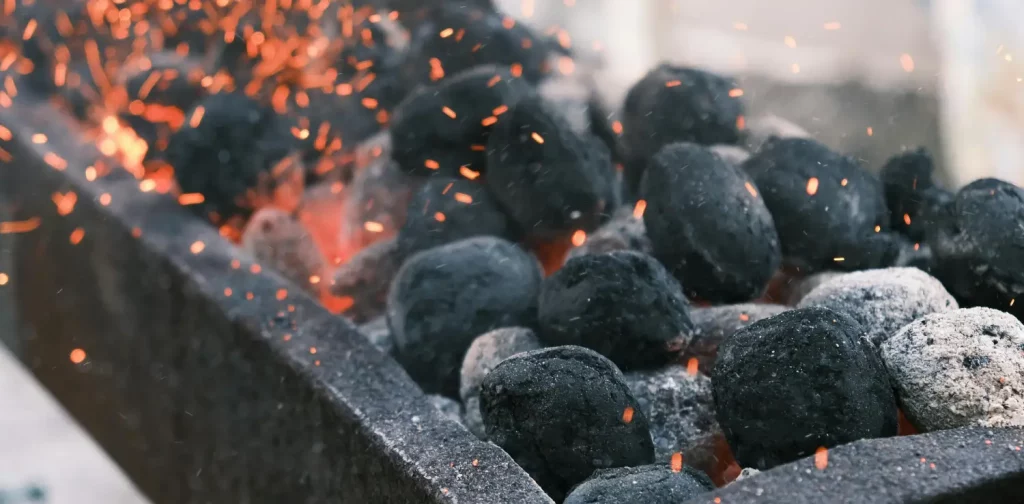Local Women Produce Alternative Charcoal to Minimize Deforestation in Uganda

Photo by Sarah Claude on Pexels
Ugandan forests are rich in biodiversity and benefits for people and the environment. Unfortunately, Uganda has lost over one million hectares of tree cover in the past 20 years. Some of this loss is due to the high demand for charcoal as fuel used to meet the daily needs of surrounding communities. To tackle this issue, women leaders have developed alternative charcoal briquettes out of organic waste, primarily food scraps, to help halt deforestation in Uganda.
Deforestation in Uganda
Uganda, a country popularly known as the ‘The Pearl of Africa’, is located in East Africa. Approximately 10% of the land area is presently covered by the forest, which is home to at least 7.8% of the world’s known mammal species and 11% of its bird species, according to the Convention on Biological Diversity.
However, Uganda’s forest cover is under threats of deforestation. One of the causes of deforestation in Uganda is the common utilization of forest products as fuelwood (charcoal) by local communities. Demand for charcoal is high and expected to increase by 6% annually due to population growth and migration from rural to urban areas.
In order to meet this demand, producers of charcoal and non-Ugandan loggers have started to forcibly remove protected forest reserves. This practice has resulted in the loss of vital habitat for wildlife and a sustainable food source for local communities, such as fruit trees.
“Unlike neighboring countries Kenya and Tanzania, which have stricter conservation laws, Uganda is such an open market that you can do anything, you can trade in anything,” said Businge, Women’s Earth Alliance (WEA) Uganda program lead and a co-founder of the Uganda Women’s Water Initiative (UWWI).
Developing Alternative Charcoal
Through training activities facilitated by the Woman Earth Alliance (WEA) and Women’s Water Initiative (UWWI), Ugandan women learn how to make alternative charcoal to minimize the use of wood charcoal from the forest. The charcoal is made of organic waste, primarily food scraps that would otherwise go uneaten, in place of wood to create charcoal briquettes.
The alternative charcoal briquettes offer some benefits for women in Uganda. First, the materials are free, environmentally friendly, and more durable as fuel for cooking. Second, it saves their time, because they don’t have to go to the distant forest to fetch wood for their fuel. Third, local women can sell the waste briquettes for a source of income.
“They keep their livelihood, but they don’t have to cut the trees to do it,” said Hajra Mukasa, WEA’s East Africa regional director at WEA and a leader and educator at UWWI.
Scalable and Adoptable
Making alternative charcoal briquettes from organic is a good practice that has also been utilized and researched in other communities around the world, such as Indonesia, Saudi Arabia, and Thailand.
This effort to help halt deforestation can be scaled up and adopted across the globe, but collaborative efforts are needed. Research, policy, support, funding, and active participation from governments, the private sector, and local communities are all essential to developing solutions to deforestation that conserve nature, respect local and Indigenous communities, and protect their livelihoods.
Editor: Nazalea Kusuma

Co-create positive impact for people and the planet.
Amidst today’s increasingly complex global challenges, equipping yourself, team, and communities with interdisciplinary and cross-sectoral insights on sustainability-related issues and sustainable development is no longer optional — it is a strategic necessity to stay ahead and stay relevant.


 Reframing Governance in the Era of Water Bankruptcy
Reframing Governance in the Era of Water Bankruptcy  Strengthening Resilience amid Growing Dependence on Space Infrastructure
Strengthening Resilience amid Growing Dependence on Space Infrastructure  Indian Gig Workers Push Back Against 10-Minute Delivery Service Strain
Indian Gig Workers Push Back Against 10-Minute Delivery Service Strain  Call for Governance: Grassroots Initiatives Look to Scale Efforts to Conserve Depleting Groundwater
Call for Governance: Grassroots Initiatives Look to Scale Efforts to Conserve Depleting Groundwater  Integrating Environment, Climate Change, and Sustainability Issues into Education Systems
Integrating Environment, Climate Change, and Sustainability Issues into Education Systems  Finally Enforced: Understanding the UN High Seas Treaty
Finally Enforced: Understanding the UN High Seas Treaty